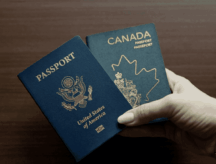Jurisprudence – Failure to Assess Requested Occupation
BETWEEN: OLANREWAJU OLATUNJI OLAJUWON (Applicant) - and - THE MINISTER OF CITIZENSHIP AND IMMIGRATION (Respondent)
REASONS FOR ORDER
MacKAY, J.:
[1] This is an application for judicial review of and an order setting aside, the decision of the visa officer at the Canadian High Commission in London, dated August 14, 1997, whereby the applicant's application for permanent residence in Canada was rejected.
[2] The applicant and his wife made application for permanent residence in Canada. Originally from Nigeria, they had been residing in the United Kingdom for some eight years. They were interviewed in relation to their applications on July 24, 1997 at the Canadian High Commission in London. They and the visa officer have very different recollections of the length of the interview, but that is not a matter I need resolve here.
[3] On behalf of the applicant, a number of grounds are raised to question the visa officer's assessment, which was conveyed in a letter dated August 14, 1997. In my view, one of these provides a ground for the Court to intervene and I do not propose to deal with other issues.
[4] The issue raised is the failure of the visa officer to set out in the letter including her decision any assessment or determination in relation to one of two alternate occupations which the applicant indicated he would seek to pursue if he were admitted to Canada.
[5] In the covering letter submitted with the application, the applicant's representative specifically requested that the applicant be assessed in the following occupations:
CCDO: 1179-140, Travel Agent, and
CCDO: 1179-139, Tour Operator
In the letter rejecting his application, the visa officer states: "I have assessed your application based on the requirements for Travel Agent" and she then sets out the points assigned to the assessment in that occupation. The points assigned were insufficient for approval of his application. The letter goes on to set out that the officer also assessed this application against the job descriptions contained in the NOC, the National Occupational Classification system which was introduced on May 1, 1997, after his application had been filed. The agent then sets out "The occupation for which you are qualified is Travel Agent, NOC code 6431. Unfortunately, assessed in this occupation, you would not received [sic] the required number of units of assessment."
[6] Nowhere in the letter is any reference made to assessing the applicant in relation to his specific request to be considered in relation to the occupation Tour Operator, CCDO:1179-139. Interestingly enough, in the CAIPS notes of the officer, the only references to that occupation are to the prospective assessment of the applicant, and those notes reveal no indication that he was in fact assessed in that occupation.
[7] In her affidavit, sworn some three months after the letter of rejection, the visa officer does aver:
9. It is my assessment that Mr. Olajuwon was unable to demonstrate at the interview that he had the required experience to qualify as a Travel Agent or Tour Operator. In addition, he was also unable to establish that he had the formal training normally associated with a Travel Agent or Tour Operator....
10. I advised Mr. Olajuwon in detail that it did not appear from the information he provided at the interview or on paper that he had either the training (svp 15) or experience (as described in CCDO) to qualify as a travel agent...
13. As Mr. Olajuwon was unable to establish that he had experience or qualifications to work as a Travel Agent, CCDO 1179-130, (Plans, organizes and directs operations of travel agency. Performs duties as described under master title "Managing Supervisor") or a Tour Operator, CCDO#1179-139, (Plans, organizes and sells tour programs and vacation travel packages to travel agencies) he was assessed as having O units of assessment under the experience factor when assessed in these occupations.
[8] I do not need to elect whether to give more weight to the officer's remembered recollections as set out in her affidavit or to the CAIPS notes which appear in the record, but are not appended to a sworn affidavit. In Nunes v. The Minister of Citizenship and Immigration, (unreported, IMM-2749-96, April 9, 1997), my colleague, Mr. Justice McKeown, dealt with a somewhat similar case where the visa officer failed to assess the applicant for permanent residence in relation to his requested occupation, even though the officer had informed the applicant at the interview that he could not assess him in that occupation because he believed the applicant did not have experience for that work. In concluding his decision, McKeown J. noted: "Accordingly since the visa officer did not address the applicant's intended occupation in his refusal letter the application for judicial review must be allowed." He also commented: "The duty to assess has not been complied with due to the visa officer's misinterpretation of the intended occupation description. The visa officer failed to assess the applicant in his intended occupation due to his wrongful belief that the work experience of the applicant was restricted to clerical duties, and his misunderstanding of the functions of an administrative officer...".
[9] In the case at bar, the applicant specifically requested that he be assessed in relation to two occupations. In the letter rejecting his application, only one of those was addressed by the visa officer and there is no evidence except for the later affidavit of the visa officer that the applicant was in fact assessed in relation to the occupation Tour Operator for which he had specifically requested assessment. The visa officer has a duty to assess an applicant for permanent residence in the occupations for which he requests assessment and the results of that assessment are to be set out, in any letter rejecting the application, for one or more occupations for which the applicant requests assessment.
[10] For these reasons an order was issued allowing the application for judicial review, setting aside the impugned decision of the visa officer, and referring the applicant's application for permanent residence for reconsideration by a different visa officer who should take no account of the record developed in relation to the decision now set aside.
- Do you need Canadian immigration assistance? Contact the Contact Cohen Immigration Law firm by completing our form
- Send us your feedback or your non-legal assistance questions by emailing us at media@canadavisa.com



